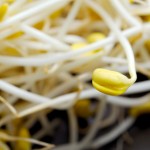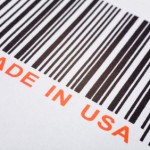This week the focus appears to have shifted. I saw a photo in The Wall Street Journal of the German Health Minister and the local Hamburg Health Minister donning surgical gloves and wearing masks and gowns while they plan to visit an isolation ward.
Now the most likely culprit appears to be bean sprouts in the food-borne illness that has affected well over 1,500 in Germany alone with 627 developing Hemolytic Uremic Syndrome (HUS). The article I read said that's an abnormally high percentage for this dire complication which has killed 22 people thus far.
Hamburg was the epicenter of the epidemic, i.e., most cases of the illness and of HUS-related complications have occurred relatively close to that city. There's lots more epidemiological work to be done, but a farm in the German state of Lower Saxony has been implicated, closed, and its produce is under a general recall.
The World Health Organization (WHO) has an online fact sheet that mentions people in 12 other countries have developed the disease termed hemorrhagic colitis (so you may see the unusual strain of E. coli called EHEC for Enterohemorrhagic E. coli). All but one person in that cohort had travel links to, or residence in, Germany.
The E. coli strain, called O104:H4, is rare, but has been seen in humans before. This is the first time its been linked to an EHEC outbreaks, this time with more than 2,200 people affected. There have been EHEC outbreaks every year, in varying parts of the globe, but almost always those have been small (the largest was in Japan in 1996 and affected more than 10,000 people).
The most recent update I found said that the first 23 samples (of 40) from the farm in question, tested negative, but more tests and more samples are pending.
Of course the economic impact on farmers has already been huge with estimates of $44 million in loses per week in Germany alone. Spain, whose cucumbers were initially blamed for the EHEC outbreak, is thinking of suing.
As of May 7th the European agriculture commissioner proposed paying farmers 30%of the cost of the vegetables they've been unable to sell, 150 million Euros. The source is still unclear and may never be known, but bean sprouts are still felt the most likely culprit, even if the ongoing tests come back negative. They've been implicated in previous US and Japanese outbreaks and are grown in heated water setting up an ideal culture media.
US scientists suggest that children, the elderly and those with weakened immune systems should not consume them raw.
And it may be unfair, but yesterday when I shopped for groceries, I looked for "grown in the US" labels.


